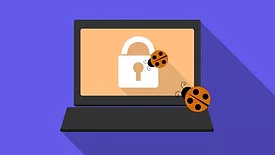Home » Keywords: » ethical hacking
Items Tagged with 'ethical hacking'
ARTICLES
Education & Training
Balancing data privacy and security in the age of AI-powered defenses
As much as AI can do to supplement cybersecurity measures, one of the most effective ways to stay ahead of evolving hacking trends is collaboration.
January 11, 2024
Sign-up to receive top management & result-driven techniques in the industry.
Join over 20,000+ industry leaders who receive our premium content.
SIGN UP TODAY!Copyright ©2026. All Rights Reserved BNP Media.
Design, CMS, Hosting & Web Development :: ePublishing












